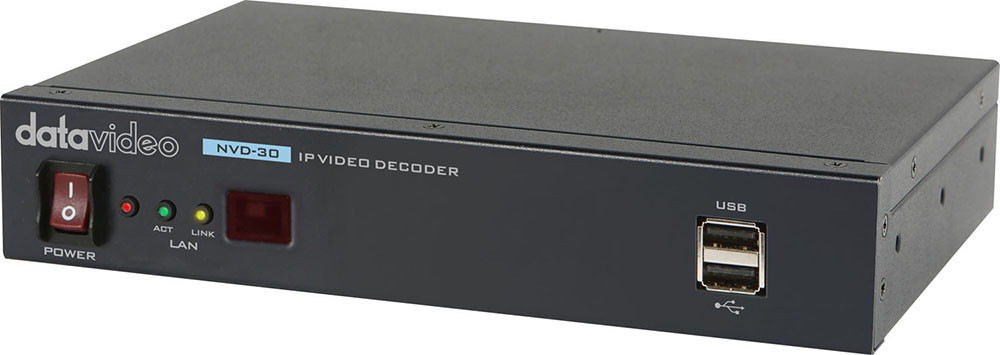Limelight Multi-Device Media Delivery (MMD) Live Video Streaming
Limelight Multi-Device Media Delivery (MMD) Live Video Streaming

Limelight Multi-device Media Delivery (MMD) Live is a powerful cloud-based feature for transcoding live video streams into multiple bitrates, and on-the-fly transmuxing into different formats, enabling a live event to be recorded for later playback. MMD Live reduces workflow complexity while meeting the demands of audiences for the highest quality video viewing experience on their choice of devices. This functionality allows users to stream live events to smart TVs, desktops, mobile screens, and set-top-boxes. MMD Live is integrated with the global Limelight Orchestrate Platform to deliver broadcast-quality live video to connected devices.
Additional information
Related Products:

MediaKind Aquila Broadcast

MediaKind Aquila Streaming

MediaKind Cygnus Distribution


Live Video Cloud



Matrox M264 Family

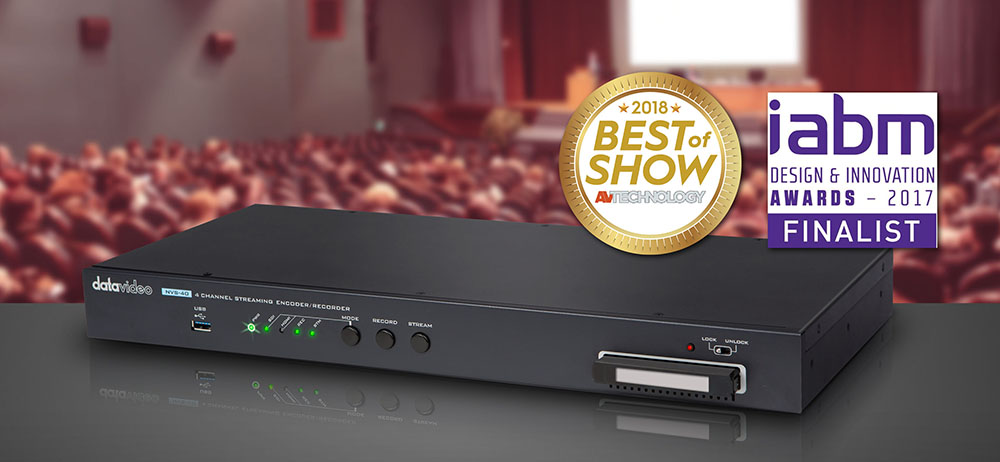
NVS-40 4 Channel Streaming Encoder/ Recorder


Zynq™ UltraScale+™ MPSoC EV


Alveo™ U30 Adaptable Accelerator Card



X Platform




NVS-33 H.264 Video Streaming Server


DVCPRO 25/50/HD Software Development Kit


Dolby Digital Plus Pro SDK


MainConcept 2GO

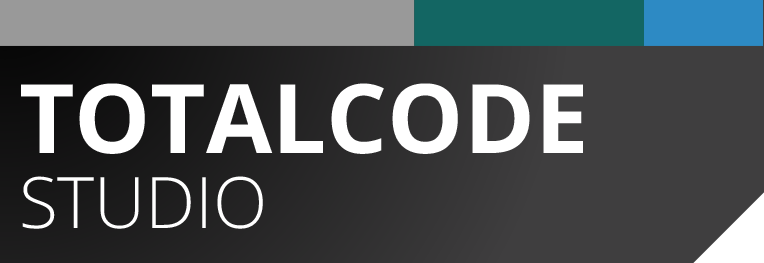
TotalCode Studio

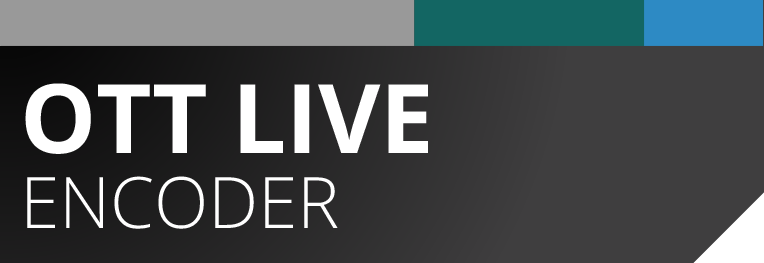
MainConcept Live Encoder

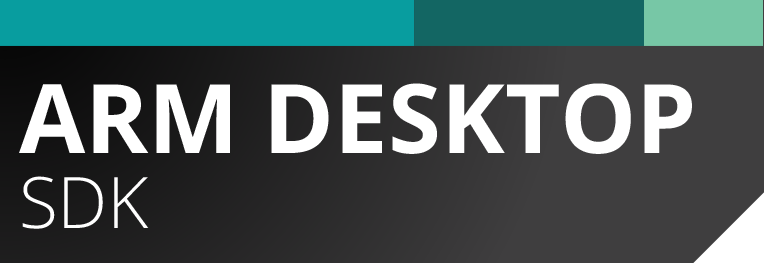
ARM Desktop SDK


Motion JPEG

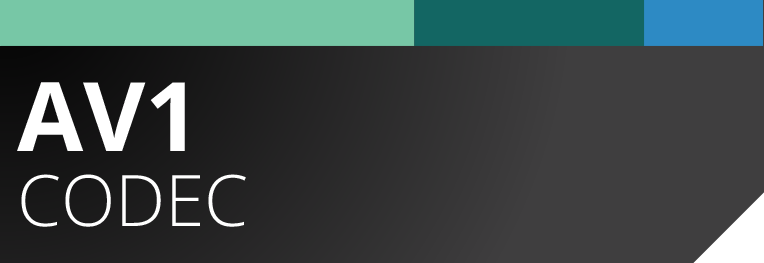
SVT-AV1


Dolby Digital Consumer SDK


JPEG 2000


V-Nova LCEVC


AAC SDK


Audio SDK


OTT Content Creation


SCTE-35

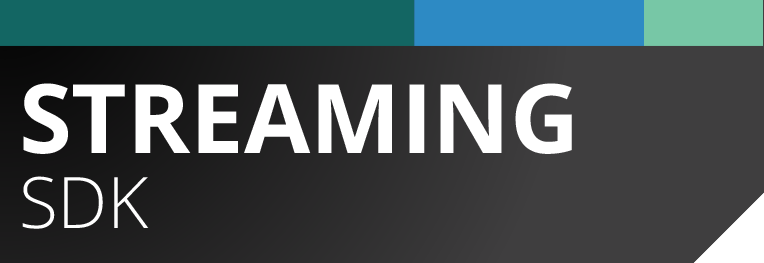
Network Streaming


AVC/H.264 for Intel QSV

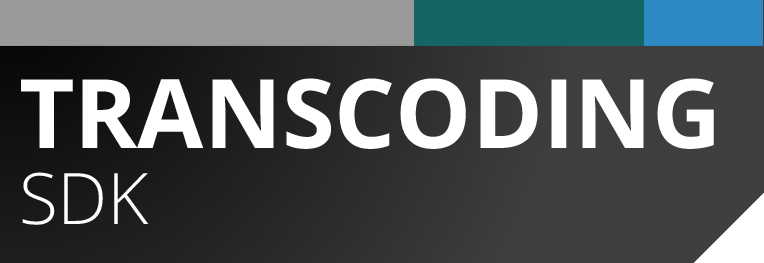
Transcoding SDK


Converter & Scaler SDK


HDR Conversion


FFmpeg Plugins


AAC Encoder


Decoder Plugins

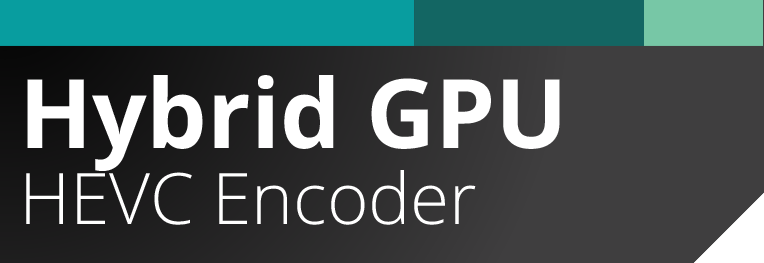
Hybrid GPU HEVC Encoder

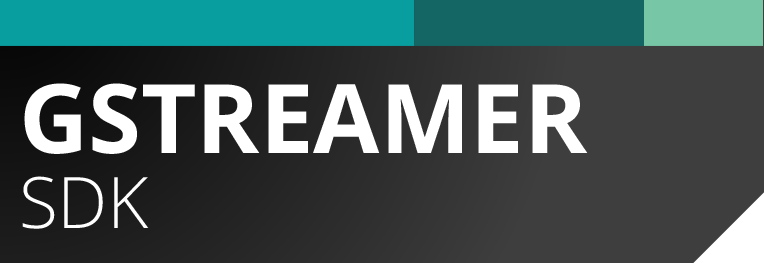
OTT Content Creation for GStreamer


Codec Plugin for DaVinci Resolve Studio


Ateme+



Actus MV – Broadcast Multiviewer


Kiloview CUBE X1 NDI CORE

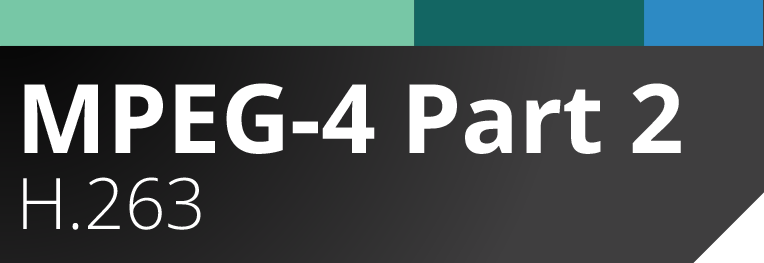
MPEG-4 Part 2 / H.263 SDK


Master Control & Playout Services


Signal Transport


Media transport


VC-1 SDK

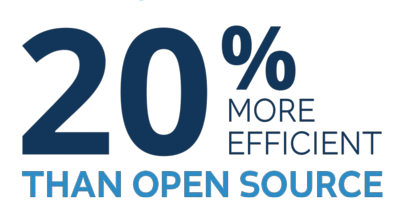
MainConcept HEVC SDK


AVC/H.264 Software Development Kit


MainConcept MPEG-1/2 Encoder and Decoder Packages


Decoder SDK for Apple ProRes

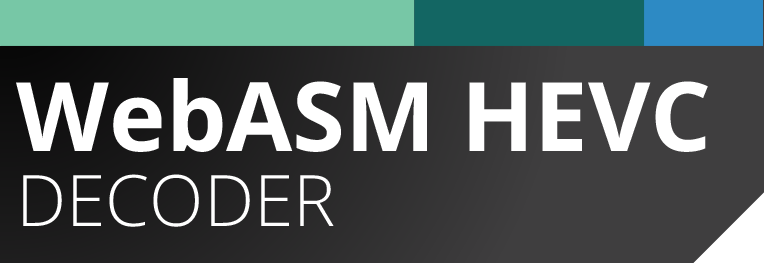
WebASM HEVC Decoder SDK

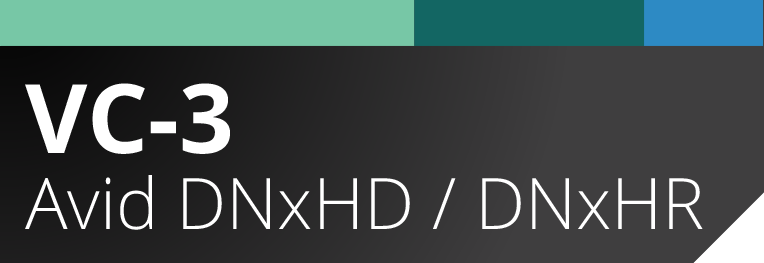
VC-3 for Avid DNxHD / DNxHR


Aperi Uncompressed Transport (SMPTE 2022-5,-6,-7) over...

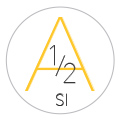
Aperi MPEG Transport Stream ASI over...


Aperi H.264 Encoder & Decoder Apps


Alveo MA35D Media Accelerator


ProMD EMS – Enhanced Management System


MDP3040 Modular IP Media Gateway for...


MDP3020 Modular IP Media Gateway (encoder/decoder)


Aperi JPEG 2000 Encoder & Decoder


Aperi TICO Encoder & Decoder App


TITAN Live


PILOT Manager


Synamedia Digital Content Manager
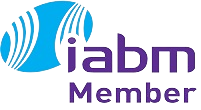

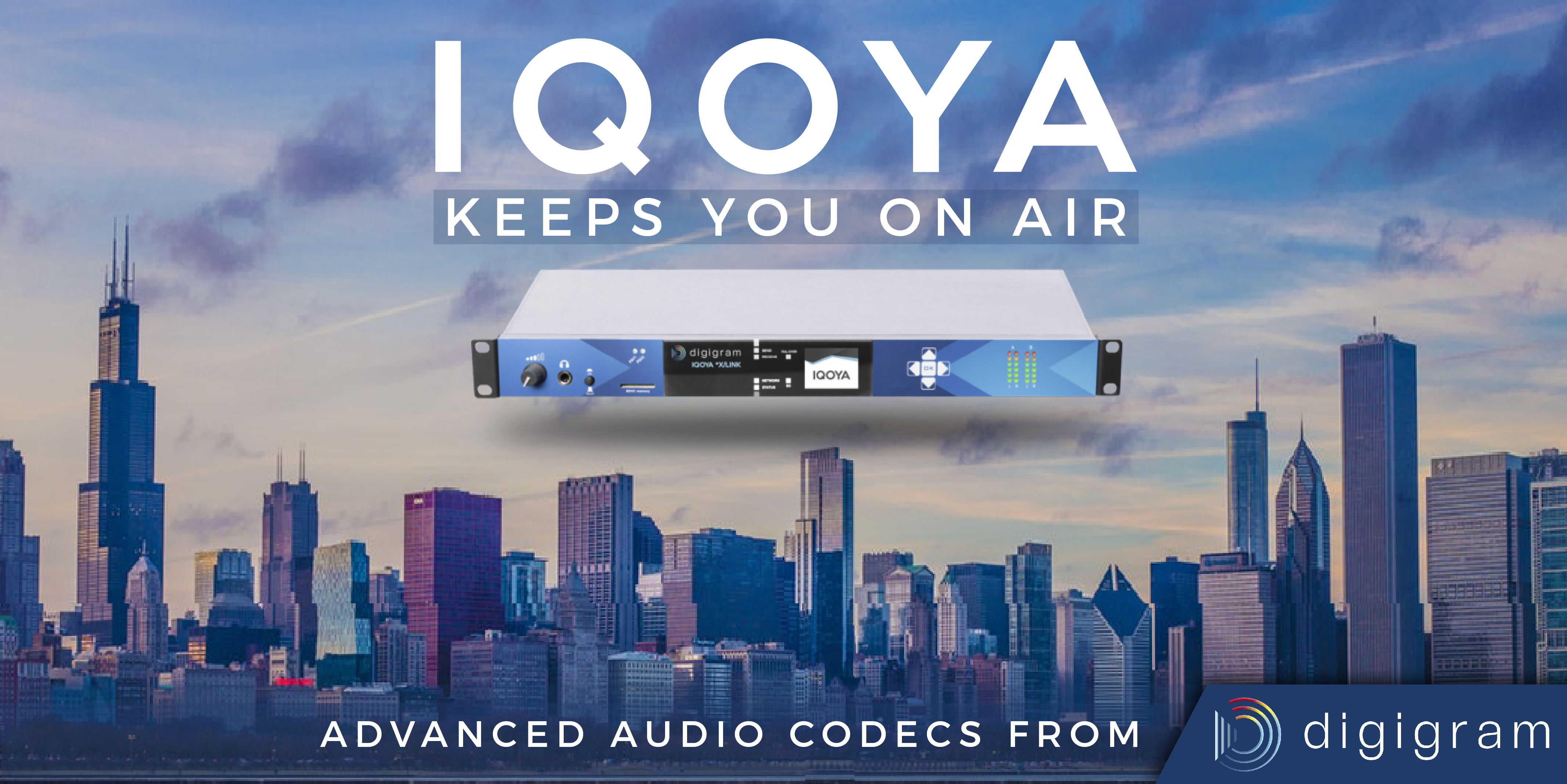
IQOYA*SERV/LINK


Limelight Multi-Device Media Delivery (MMD) Live...


VICO-4L-XS


VICO-8L-XS


Limelight Multi-Device Media Delivery (MMD) On-Demand

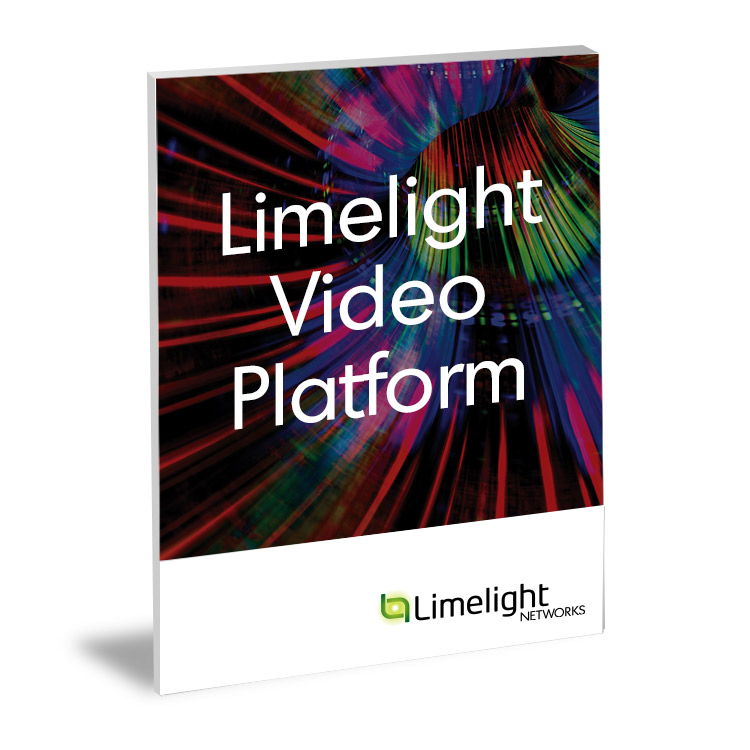
Limelight Video Platform


Sencore, Wellav, Vislink


BitSave v.2


BROADCAST TV SERVICES



ProStream X


Chimera-RM Professional Video Encoder / Satellite...
MediaKind Aquila Broadcast
Solution values
- Class leading picture quality
- Offers 10% year-on-year gain in video quality giving subscribers and viewers a more immersive experience annually.
- Flexible deployment
- Deployable as an appliance or software only, either on-premises or in the cloud ensuring any system implementation fits with all current architectures.
- Supporting an all IP workflow
- Supports the latest IP standards, including SMPTE 2022 and SMPTE ST 2110 enabling a simplified and more cost efficient solution implementation.
- Converged broadcast & OTT solution
- When combined with the Aquila Streaming solution, Aquila Broadcast provides a cost efficient broadcast and streaming platform.
MediaKind Aquila Streaming
Solution value
- Push video quality higher by leveraging MediaKind’s Encoding Live award winning technology to deliver the highest video quality and guaranteed performance across multiple codecs (MPEG-2, H.264 & HEVC)
- Enable a better consumer experience with support for a wide variety of devices by leveraging MediaKind’s packaging technology with support for all major segment and manifest formats (HLS, SS, DASH, CMAF)
- Faster time to market by utilizing a single solution to address all networks and all infrastructures (Appliances, IT datacenter & private and public clouds)
- Reduce operational complexity using a single point of entry for all media services and servers’ operations.
- Optimize OPEX and CAPEX when migrating to full IP leveraging the latest IT & cloud technologies (containers & orchestration) to significantly reduce infrastructure costs.
- Highly Available with a variety of redundancy and recovery schemes thus ensuring maximum uptime and minimizing servicing costs leading to reduced consumer churn and maintaining important revenue streams
- Aquila Streaming can be combined with Aquila Broadcast enabling a fully converged Broadcast and OTT headend
Aquila Streaming delivered as a Service
This type of solution deployment enables some further key additional benefits:
- Faster time to market for media content
- Peace of mind from proven integration with ecosystem partners to offer a full turn-key solution
- Significant cost efficiencies from the reduction of locally deployed equipment procurement or management needed since the solution leverages public cloud infrastructure
- Reduced in-house operational requirements and lifecycle management cost implications as these are handled by MediaKind
- Applications supported for 24/7 live channels, occasional use/events, and additional use cases such as disaster recovery for on premises headends
MediaKind Cygnus Distribution
Live Video Cloud
LTN® Live Video Cloud is an intuitive routing console that streamlines and scales the management of live video, from acquisition to distribution, from any source to every destination — without additional capex.
Break through feed chaos and power innovative video experiences: organize aggregation, monetize publishing, and easily enable remote productions with virtual audience engagement.
With Live Video Cloud, you can acquire unlimited concurrent live feeds from any source, configure productions in minutes, monitor and curate live video within a continuous playback multiview, and distribute live signals simultaneously to unlimited destinations.
Live Video Cloud runs on all major cloud providers worldwide, with intuitive browser-based control accessible from anywhere.
Empower audiences to easily become part of your program, and expand your digital audience reach to earn more top-line ad revenue. Command the future of video with Live Video Cloud.
Matrox DSX Core
Matrox M264 Family
The M264 family can encode/decode up to four streams of 4Kp60 at 4:2:2 10-bit, 40 streams of HD long GOP at 4:2:2 10-bit or 64 streams of HD at 4:2:0 8-bit. The faster than real-time encoding/decoding ability of the M264 allows multiple blazing fast transcodes for distribution on differing media platforms. With onboard multi-channel, motion-adaptive deinterlacing, and up/down/cross scaling, the M264 family can repurpose content into any resolution before encoding or after decoding, particularly beneficial for OTT workflows.
Specifically designed for high density encoding/decoding (Baseline Profile to High 10 Intra Profile up to Level 5.2), M264 cards provide the highest possible quality at the lowest power per stream (< 1.5 W per HD stream). The M264 S4, S3 and S2 cards are cloud friendly and their resources can be shared across virtual machines.
Matrox M264 cards are the ideal H.264 accelerators for channel-in-a-box systems, video servers, broadcast graphics systems, multi-viewers, and switchers or to create high-density encoders, transcoders and other broadcast media equipment. The Matrox M264 hardware is supported by the Matrox DSX Software Development Kit. Please refer to the Matrox DSX Developer Products datasheet for information on file I/O, software codecs and CPU effects.
Key features PCI Express Cards M264 - Gen 2, ½ length card M264 S2 - Gen 3, ¾ length card M264 S3 - Gen 3, ¾ length card, M264 S4 - Gen 3, full length card. Multi-channel, high-quality H.264 video encoding, decoding and transcoding Up to 4K resolutions supported 4:2:2 10-bit and 4:2:0 8-bit Hardware based deinterlacing and scaling Real-time and faster than real-time operation Dynamic codec control Sony XAVC compliant encoding including 4K XAVC Long and 4K Intra Class 480 Panasonic AVC-Ultra compliant Native MXF file wrapping Native MXF file reading. This includes Trim in and Trim out settings for building playlists File consolidation Time Delay Instant Replay (TDIR) support MXF file truncation and appending during live recording
NVS-40 4 Channel Streaming Encoder/ Recorder
NVS-40 uses cutting edge encoding to ensure the signal to arrive in superior quality. The encoder can downscale and de-interlace each incoming signal to meet the destination specifications. Each incoming signal is dual-encoded. This means that each signal can be distributed in two bitrates. This gives the user an enormous amount of freedom and flexibility. NVS-40 can be used with all major streaming platforms and social media channels, such as YouTube Live, Facebook, Twitch, UStream, Akamai, Wowza, Adobe Media Server and Datavideo’s own DVS-200 server.
The NVS-40 offers extensive customization options. Each input channel has its own color correction options to customize brightness, contrast and saturation. Setting up NVS-40 is easily done with a very simple browser menu. This way, NVS-40 is accessible from any device on the network.
Going live on the internet is mandatory for any video producer at the moment. NVS-40 gives you all the features and capacity to produce the way you like without giving up reliability. It can replace multiple streaming encoders and recorders. NVS-40 is a cost-effective solution for any video producer that needs to deliver his or her production to multiple servers at the same time."
Zynq™ UltraScale+™ MPSoC EV
The Zynq UltraScale+ MPSoC EV devices are particularly suited to a wide range of broadcast and media applications, from camera encoding to mobile wireless video systems, and contribution IRDs to live streaming encoders:
- Configurable and dynamically adjustable codec
- Integrate with a wide portfolio of AMD and partner IP cores such as 12G-SDI, ST 2110, IPMX, NDI, Dante AV Ultra, HDMI, DisplayPort etc.
- Up to 4K60 4:2:2 10-bit H.264/H.265 simultaneous encode + decode
- Multichannel support up to 4K60 (e.g. 2x 1080p60 or 4x 1080p30...)
- Ultra-low-latency mode of <35ms glass-to-glass
- Total device power for a single pipeline as low as 8.5W
Alveo™ U30 Adaptable Accelerator Card
The Alveo U30 media accelerator card provides the industry’s highest channel density, lowest cost per channel, and lowest power consumption for live video streaming workloads. When coupled with Video Software Developers Kit (SDK) from AMD the solution provides a production-ready platform for live streaming providers to benefit from AMD hardware acceleration with standards-based FFmpeg, GStreamer and APIs.
The U30 is available for live video transcoding in the cloud over Amazon EC2 VT1 instances or as a preconfigured appliance for on-premises deployment from our partners.
High Channel-Density at Low Latency
- Accelerate the entire video pipeline to optimize for cost-per-stream at transcode latencies as low as 8ms
Optimal Video Quality at Reduced Bandwidth
- High compression efficiency and ABR scaling lowers bandwidth cost with optimal video quality
Cost-Effectively Scale Interactive Media Applications
- Scale to more users and content creators by maximizing streams per server and controlling bandwidth and power expenses
Alveo U30 Features
- Small footprint – half-height, half-length
- Low power ~18-25W typical
- High density media processing: 112 x 1080p30 transcodes in real-time on a single appliance populated with 7 x Alveo U30 accelerators
- HEVC (H.265), H.264 (AVC) & Adaptive Bit Rate (ABR) Scaling
- Supports video resolutions from 128x128 to 3840x2160
- Simultaneous decoding, scaling and encoding of up to 46 streams with max aggregated bandwidth of 2X4Kp60 per card
- Faster-than-Real-Time (FTRT) feature enables a 60 minute 1080p60 quality video to be transcoded in 20 minutes on a single U30 accelerator
- Xilinx Resource Manager (XRM) enables multiple video processing jobs to run across multiple Alveo U30 cards for seamless workload scaling Seamless FFmpeg, GStreamer and API integration
XC Platform
X Platform
NVD-30 HDMI IP Video Decoder
The NVD-30 decodes all common protocols including RTP/RTSP, RTMP, UDP, TCP, HTTP, HLS and MPEG-TS and can output SD/HD video at resolutions up to 1080p60. Decodes directly from YouTube Live, UStream and most major CDNs without any 3rd party advertising.
The NVD-30 is the perfect partner to the Datavideo NVS-25/NVS-30 IP encoders allowing full HD point to point video links over Ethernet, WiFi or the Internet. When connected to a Datavideo DVS-200 Cloud Streaming Server, the NVD-30 can function as a IPTV set top box downloading a channel list of both live and pre-recorded streams automatically."
NVD-35 SDI IP Video Decoder
The NVD-35 decodes all common protocols including RTP/RTSP, RTMP, UDP, TCP, HTTP, HLS and MPEG-TS and can output SD/HD video at resolutions up to 1080p60. Decodes directly from YouTube Live, UStream and most major CDNs without any 3rd party advertising.
The NVD-35 is the perfect partner to the Datavideo NVS-25/NVS-30 IP encoders allowing full HD point to point video links over Ethernet, WiFi or the Internet. When connected to a Datavideo DVS-200 Cloud Streaming Server, the NVD-35 can function as a IPTV set top box downloading a channel list of both live and pre-recorded streams automatically."
NVS-33 H.264 Video Streaming Server
The NVS-33 is able to configure two different bitrates for recording and streaming simultaneously. It supports SDI and HDMI inputs, as well as external audio RCA unbalanced input. The NVS-33 is remotely controlled using a Windows / Apple PC or mobile device with a web browser.
The file system could be NTFS, FAT or exFAT to keep the continuous recording without file size limitation. Flexible mechanism design that is fit for a desktop application or 1U rackmount application."
DVCPRO 25/50/HD Software Development Kit
Dolby Digital Plus Pro SDK
The Dolby Digital Plus Pro SDK features the renowned Evolution Framework and Intelligent Loudness Correction to fulfill Dolby’s requirements for proper metadata processing.
Combined AC-3 and EAC-3 Support
The MainConcept Dolby Digital Plus Pro SDK components support both Dolby Digital (AC-3) as well as Dolby Digital Plus (EAC-3) audio for encoding and decoding.
Built-In Transcoding Functionality
Current Dolby Digital Plus Pro SDK comes with the new Dolby transcoding functionality that allows users to transcode EAC-3 and AC-3 audio to any other supported Dolby audio format (AC-3 or EAC-3) and keep the meta-meta that is available in the stream. User still have the opportunity to access the PCM data directly.
Support for up to Eight Channels Surround Sound
Encoding and decoding for different channel layouts ranging from mono, stereo, 5.1 up to 7.1 for the perfect Dolby audio experience.
Evolution Framework Support for Encoding & Transcoding
Making use of Dolby’s Evolution Framework in the AC-3 and E-AC-3 Encoder and Transcoder libraries for loudness processing to perform appropriate loudness metadata authoring. This enables Intelligent Loudness management for any Dolby stream.
MainConcept 2GO
Today’s production workflows are heterogeneous deployments, i.e. running on local server farms, or in the cloud, or as hybrid solutions. No standard software fits all possible requirements for data transfer, platform integration, scalability, user interface or codec and streaming features. Thus creating an optimized broadcast workflow is a challenge. MainConcept 2GO products are the building blocks with the perfect balance between flexible usage and fast integration in your work environment or service. Bundled in an isolated container each 2GO product is unique, easy to deploy, scale and ready-to-use in any process. Whether you are looking for a live streaming feature, an archiving module, a distributed transcoder, or an on-demand packaging and distribution add-on. The usage scenarios for MainConcept 2GO are endless. And it’s as easy as download, install and use.
System Requirements
The MainConceptⓇ 2GO products are containerized applications that run in all environments supported by Docker. Known systems include Microsoft Windows 10, Windows Server 2016 & 2019, Linux and most cloud platforms from Amazon, Microsoft and Google. Support on Windows 7 and macOS is limited with Docker Toolbox and a 3rd party virtualization software.
Please note that on Windows you must configure Docker for Linux Containers, so you should use the CE (Community Edition) rather than EE (Enterprise Edition) version of Docker. Docker CE requires a full GUI to install, so for this reason, Windows Server 2016 users must have the full ‘desktop experience’ installed. The lighter-weight versions of Windows Server 2016 cannot be used because they do not have a full GUI. Other versions of Windows only have a full GUI. Due to some limitations in VirtualBox, MainConcept 2GO does not work if you are running the VM tool with Windows Server 2016.
Computers running MainConcept 2GO products need an outgoing internet connection via port 443 (https).
TotalCode Studio
Many powerful features are included such as watch folder automation, batch list encoding, and audio and video filters (color correction, timecode insertion, and audio normalization). With a robust feature-set and the simplicity of a desktop application, TotalCode Studio is ideal for production environments requiring professional quality and performance.
MainConcept Live Encoder
In real-time you can encode content into multi-bitrate and multi-resolution layers, for a complete OTT ready output that includes playlist generation. The powerful solution also offers a variety of prepared encoding presets for simplified parallel live encoding, upload to supported CDNs, and live archiving.MainConcept Live Encoder is available in both Windows and Linux, as a web-application or easily integrated using REST-API.
ARM Desktop SDK
The introduction of the ARM-based Apple M1 chipset for the new MacBooks and Mac mini, as well as ARM processors already in production within the Windows PC ecosystem, brings us to an inflection point within the video production industry.
The average consumer may not know the difference between an ARM-based MacBook or PC and the x86 version. They will, however, know when software doesn’t work on their new hardware. At MainConcept, we are making the transition seamless by bringing our best-in-class video codecs to macOS and Windows on ARM processors.
Motion JPEG
Software Solution for Surveillance Systems
The MainConcept Motion JPEG SDK eliminates the need of expensive hardware, because it is perfectly suited for a wide variety of industrial areas, such as surveillance, security and medicine technology as well as in video conferencing systems.
Cost-effective alternative to Hardware Solutions
Our Motion JPEG codec pack is also perfect for manufacturers developing webcams, surveillance systems and other video devices. The codec offers a complete, software-only solution which eliminates the need for expensive compression chipsets.
SVT-AV1
Focused on OTT, AV1 is ideally suited for content delivery to web browsers and mobile devices. MainConcept seamlessly combines AV1 encoding with our proven MPEG-DASH multiplexing and formatting technology to greatly enhance streaming quality. It supports the common MainConcept API and adds useful features unavailable elsewhere.Working with Intel, the SVT framework is integrated into the MainConcept AV1 encoder, allowing it to run efficiently from edge to cloud on multi-core CPUs like Intel Xeon Scalable processors and Intel Xeon D processors.
* Industry estimates compared to HEVC
Dolby Digital Consumer SDK
Support for up to Six Channels Surround Sound
Encoding and decoding for different channel layouts ranging from mono, stereo up to 5.1 for the perfect Dolby audio experience.
Large Number of Supported Media & Devices
Dolby (AC-3) is major audio standard that is compliant with numerous devices ranging from DVD / Blu-ray players, TV sets up to mobile devices and PC platforms delivering clear and excellent quality..
JPEG 2000
V-Nova LCEVC
Business Benefits
- Reduce Churn –Better video quality and increased resolutions at the same bitrates drive up Quality-of-Experience and customer satisfaction, increasing viewing times for improved ad-monetisation and significantly reducing subscriber churn
- Increase Reach – Enables stable video delivery at lower bitrates than ever before (as low as 100kbps) – meaning viewers can be reached over the most limited networks
- Reduce Delivery Costs – Storage and CDN delivery costs can be cut by up to 80%
AAC SDK
Full Standard Compliance
Both MainConcept Encoder and Decoder components comply to the MPEG-2 (ISO/IEC 13818-7) and MPEG-4 (ISO/IEC 14496-3 including Amd.1:2003 – AAC HE v1 and Amd.2:2004 – AAC HE v2) AAC audio streams specification, incl. support for AAC LC (Low Complexity), AAC HE v1 and AAC HE v2.
Support for up to Eight Channels Surround Sound
Depending on the AAC flavor encoding and decoding for different channel layouts ranging from mono, stereo, 5.1 up to 7.1 for the perfect AAC experience.
Various Output Formats
Support for common output formats like RAW (no header, used for multiplexing into MP4 file format), ADTS (Audio Data Transport Stream header, stand-alone AAC files), and LOAS/LATM (used for multiplexing into MPEG-2 streams)
Audio SDK
MPEG Audio Encoder/Decoder
Audio encoding into MPEG-1 (ISO/IEC 11172-3) and MPEG-2 (ISO/IEC 13818-3) streams. The corresponding decoder additionally enables you to play back MP3, MPEG-2.5 and LPCM audio streams. MP3 (MPEG-1/2 Layer 3) is the most widespread format for audio playback currently on the consumer market. It is supported by almost every mobile player, cell phone etc.
PCM Audio Encoder
Support for DVD LPCM, AES3 PCM's and HDMV PCM (for AVCHD and Blu-Ray). The PCM audio encoder can be used with the muxer to put PCM audio tracks into DVD, MPEG-2 Transport and MXF Streams. It also supports AES3 382 for XDCAM HD and AES3 311 for IMX.
AAC Encoder/Decoder
Encode and decode MPEG-2 (ISO/IEC 13818-7) and MPEG-4 (ISO/IEC 14496-3 including Amd.1:2003 – HE AAC v1 and Amd.2:2004 – HE AAC v2) AAC audio streams. The AAC (Advanced Audio Coding) format is predominantly used with HEVC/H.265, AVC/H.264 and MPEG-4 Part 2 video streams that are muxed into the MP4 container, which is required for mobile devices and streaming workflows. The AAC Encoder SDK comes with a MainConcept AAC Encoder and a Fraunhofer AAC Encoder. The latter is optimized for adaptive bitrate streaming formats. The AAC Encoders as well as the AAC Decoder support up to 7.1 channels.
AMR Encoder/Decoder
Software-only AMR encoding and decoding. Components are available as narrow and wide band versions. AMR (Adaptive MultiRate) is a speech codec with variable bitrates which has been standardized by 3GPP and ETSI. It is predominantly used for mobile devices, such as cell phones together with MPEG-4 Part 2 or H.264/AVC video streams.
WMA (Windows Media Audio) Encoder/Decoder
Encode and decode audio streams into a WMA-compliant file format. By using the MainConcept ASF (Advanced Systems Format) Muxer, the WMA streams can be muxed with VC-1 video streams.
OTT Content Creation
Live content can now be delivered using CMAF to achieve end-to-end latencies close to broadcast and guarantee a near-live experience for all viewers.
CMAF Low-latency
Bring content delivery as close to the live edge as possible using CMAF Low-latency with chunked uploading to the server (or CDN) while preserving all features of adaptive bitrate streaming. Multiple audio languages, multiple subtitles - just delivered significantly quicker.
HLS and MPEG-DASH
Deliver your content to any device by using either HTTP Live Streaming (HLS) or MPEG-DASH formatting. Re-purpose the same content for both formats by using fragmented MP4 (fMP4) media and format-specific playlists.
Live and VOD
MPEG-DASH or HLS content creation for both live and VOD production workflows giving the user the freedom of choice for the right mode to deliver content to the appropriate OTT platform.
HEVC and AVC Support
Reduce bandwidth by using HEVC/H.265 Video in either streaming format. For compatibility with legacy devices AVC/H.264 Video can be added to the adaptive streaming set.
MP2 and fMP4 support
In order to cater for older devices with legacy HLS protocol implementations, formatting to MP2 Transport Stream is fully supported.
Multi-Audio, Multi-Subtitle
Using either AAC, Dolby Digital AC-3 or Dolby Digital E-AC-3 audio in multiple languages you can ensure that your content is not only seen, but also heard in optimal quality. Subtitles either as TTML/IMSC1, WebVTT or as closed captions ensure that what you hear is what you read.
SCTE-35
Dynamic Ad-Insertion addresses this problem. Inside an MPEG Transport Stream (TS) information is embedded which marks the start and the duration of a pre-produced ad. Using this information it is possible to replace the pre-produced ad in such a stream with fresh, up-to-date content from a server. MainConcept’s SCTE-35 SDK enables handling Ad-Insertion data by providing access in a user-friendly way using XML files so that establishing a connection with an Ad Decision Server or modifying Ad-Insertion information becomes a simple task.
Interface with MPEG-2 Transport Streams
Extract or insert SCTE-35 information from or into MPEG-2 Transport streams as used in DVB or ATSC transmission systems. The SCTE-35 information can be identified by Program Information Description (PID) and associated with individual programs in the stream.
Conversion to and from XML
Facilitate handling of Ad-Insertion information by using human-readable XML files which can be edited or used in conjunction with Ad Decision Servers for Ad replacement.
Heartbeat Information
Create Placeholders in a transport stream which signal that at a later point in time SCTE-35 information will be present at a certain PID in the stream.
Network Streaming
What good is audiovisual media, when it’s only stored locally on a hard disk? Content becomes valuable when it’s being distributed, either locally in the facility for collaboration or globally for sharing and viewing. MainConcept Network Streaming SDKs enable media streaming and sharing in a variety of formats. Whether unicast or multicast, whether using RTP or RTMP for direct point-to-point connections or using UDP for custom streaming. Direct, unencrypted, or with added security layers, almost everything is possible using MainConcept Streaming SDKs.
The Network Server SDKs enables RTP, RTSP, RTMP* and now also RTMPS* streaming any media, in almost any codec from your application to any network client. Applications range from media exchange inside the facility, generating live feeds for broadcasting to Facebook Live ingest.
Its counterparts, the Network Client SDKs enable applications to receive and ingest media via RTP, RTSP, RTMP* as well as from Adaptive Streaming* sources using HLS, MPEG-DASH or Microsoft Smooth Streaming.
Seamless integration with MainConcept demultiplexers and decoders is guaranteed by providing access to the network components through the renowned MainConcept API.
* Features require optional licenses.
RTMPS
Create content and stream to Facebook Live directly from your application. The added security layer, now mandated by Facebook, ensures reliable and protected media connections for efficient live distribution.
Realtime Streaming for lowest latency
Utilize robust and proven realtime protocols to deliver content with minimal latency. Granular control over buffering settings allows tuning the behavior to meet any network condition and latency requirements.
ICECAST
Added protocol support for receiving audio broadcast streams via ICECAST easily enables ingesting of radio streams into any application.
Adaptive Bitrate Streaming
Whether it is MPEG-DASH, HLS or Microsoft Smooth Streaming, the Network Client SDK enables ingesting content from ABR sources into any application.
Complete protocol support
Single API for all supported protocols for fast integration
Monitoring and Buffer Statistics
Network components provide comprehensive realtime information about delay, buffer levels and network jitter.
IGMPv3 with source-specific multicast
Supporting latest specification to reduce network traffic and improve security
AVC/H.264 for Intel QSV
The MainConcept AVC/H.264 Encoder for Intel® Quick Sync Video acts as a wrapper that integrates Intel® Media SDK into the MainConcept API providing easy access to dedicated video processing in 3rd Generation Intel® Core™ Processors and newer. Through the MainConcept Low Level API and DirectShow filter set, developers can simply add Intel Quick Sync Video functionalities to their applications. Even when running on platforms that lack Intel’s dedicated graphics hardware acceleration features, solutions developed with the MainConcept AVC/H.264 Encoder for Intel QSV still gain benefit of optimized, and multi-threaded software-based video encoding, tailoring performance to the system’s capabilities.
Hardware-Based Encoding
Hardware-based AVC/H.264 encoding compatible with Intel® CPU’s, starting from 3rd Generation Intel® Core™ Processors and newer using MainConcept’s renowned API.
An SDK Within an SDK
MainConcept AVC/H.264 QSV Encoder SDK, like Intel Media SDK 2.0, gives developers a streamlined interface for handling otherwise complex coding tasks. Similar to Intel’s SDK, the MainConcept uses a dispatcher layer within their API to insulate developers from the complexities of supporting IQSV technology.
Automated Hardware detection
The optional AVC/H.264 Video Encoder Wrapper is able to perform automatic detection which MainConcept encoder is available on the system and which hardware is supported. It will enumerate all available encoders which can be used inside the application.
Transcoding SDK
The transcoder generates compliant streams across different devices, media types, and camcorder formats, and includes support for MPEG-DASH and Apple HLS adaptive bitstream formats. Compliance ensures content is delivered that meets each unique specification.
Transcoding SDK was created to simplify the workflow for developers who frequently move between codecs and output to a multitude of configurations.
Integrated SDKs
Preconfiguring the industry-leading MainConcept SDKs means developers do not need to focus on the codec settings and parameters, enabling fast deployment of file-based transcoding tools that can be controlled via command line or a server-side application.
Hardware Encoding powered by Intel and NVIDIA
AVC & HEVC hardware encoding using Intel Quick Sync Video and NVIDIA NVENC on Windows and Linux (if supported by the GPU). Hybrid GPU-accelerated HEVC encoding available on NVIDIA RTX, GTX and Quadro boards, delivering increased performance and at the same quality as the MainConcept software encoder.
Pre-defined AS-11 UK DPP Presets
Encoding profiles for AS-11 UK DPP SD (MPEG-2) and HD (AVC/H.264) for broadcast workflows, including the ability to load external XML metadata files for processing UK-shim compliant MXF files and optional generation of XML sidecar files.
Processing Filters and HDR Conversion
Includes ready-to-use video and audio filters for a variety of production environments and occasions, or work with your own filters by using the powerful Transcoding SDK Filter API for easy integration. For finishing, it includes HDR Conversion to multiple formats as well as the ability to create SDR content compliant with non-HDR devices.
Converter & Scaler SDK
Image Scaling and Color Conversion
Optimized component that can perform both image scaling and color conversion in one single operation to reduce processing time.
Color Space Conversion
Large matrix of available real-time color space and bit depths up to UHDTV (4K), incl. color space support for BT.709, BT.601 and BT.2020.
Frame Rate Conversion
Allows to convert video frame rates on field level. Supports conversion of progressive and interlaced frames.
Audio Conversion
On-the-fly audio conversion PCM, DVD LPCM, HDMV LPCM and AES3 input/output data formats, incl. sample rate and channel configuration change.
HDR Conversion
to reduce costs and efforts for PQ/HDR-10 to HLG, HLG to PQ/HDR-10
and PQ/HDR-10 to SDR transformation.
The MainConcept HDR Conversion SDK offers flexible high-end HDR (High Dynamic Range) routines to enable conversion of PQ/HDR-10 to HLG, HLG to PQ/HDR-10 and PQ/HDR-10 to SDR. HDR conversion is targeted at both VOD and live production scenarios. Performance is tuned for 4K60 live conversion with minimal CPU utilization. This exciting feature allows HDR live workflows without requiring dual-stream cameras and video mixing equipment which is a huge cost-saver for smaller-scale production houses moving to HDR. The package additionally enables color gamut transformation from BT.2020 to BT.709 or BT.601.
Using the HDR Conversion SDK will dramatically reduce effort and cost of live HDR productions, because it does not require expensive hardware for generating content for every HDR flavor but only record once and convert many! Of course, the HDR Conversion SDK also allows offline transformation for distribution and content delivery.
High Dynamic Range (HDR) Conversion
Instantly convert between HDR flavors HLG and PQ/HDR-10 for mixing and matching different sources in live transmission or file encoding.
SDR Downconversion
Re-utilize HDR content in SDR workflows by converting from PQ/HDR-10 to SDR or converting from BT.2020 to BT.709 color gamut with downscaling at highest quality so that HDR content seamlessly integrates into any production environment.
FFmpeg Plugins
Easy to Integrate
Simple plugin approach to bring MainConcept encoders into your new or existing FFmpeg environment
Better performance than open source
MainConcept is proven to outperform open-source codecs, with familiar FFmpeg libraries and toolsets
Advanced features
Gain access to Hybrid GPU acceleration, ready-to-use presets, and more
AAC Encoder
Get better quality with AAC
AAC is the emerging future audio standard that might replace existing ones, such as MP3. It is already supported by popular devices such as Apple iPod, Sony PSP, Sony PS3, Nintendo Wii, various cell phones etc. Some technical snap-shots:
- AAC and HE-AAC offer a significantly better audio quality while using the same bit rate as other audio codecs, especially for bit rates below 192 kbps.
- AAC may only need a fraction of the bandwidth than MP3 for your field of application (e.g. broadcasting concerts), thus resulting file sizes will be smaller too.
- AAC offers a significantly higher coding as well as compression efficiency and allows you a higher flexibility in usage than MP3.
Most importantly, saving bandwidth and having smaller file sizes means saving money – especially if your business relies on continuous video & audio streaming over scarce resources. Providing better audio quality to your audience and encoding efficiency only add to the advantages of the AAC encoding standard.
AAC was developed to be the successor of MP3. For more technical details on AAC you may refer to comprehensive public documents at Wikipedia.
Adobe Flash Media Live Encoder 3.0 (FMLE) already includes the MainConcept H.264 Encoder technology to create professional video streams. Now using the AAC Encoder Plug-In, it additionally supports AAC (MPEG-4 AAC & HE Audio), enabling you to directly create and stream Flash compliant F4V or FLV files that include both H.264/AVC video and AAC audio. It is the perfect companion for FMLE, as it enables you to generate Flash compliant streams using these encoders on-the-fly. And your files are always compliant with the latest Flash Player version.
Where to get the base application?
You can find more information about Adobe® Flash® Media Live Encoder and download information for the product at the following location: www.adobe.com/products/flash-media-encoder.html
Decoder Plugins
- Decoder Pack MPEG-2
- Decoder Pack AVC/H.264 Pro
- Decoder Pack AVC/H.264 Broadcast
- Decoder Pack DVCPRO HD
MainConcept ShowCase offers a simple test environment for you to playback videos in numerous formats and streams:
- Blu-ray Disc*
- Adobe Flash F4V streams
- AVC-Intra Class 50 and Class 100
- DVD*
- Sony XDCAM HD, XDCAM EX, XDCAM DV and XDCAM IMX
- Panasonic P2 DVCPRO and AVC-Intra
- Sony PSP
- Apple iPod
- AVCHD*
- …many more
ShowCase allows users to install all demo decoders separately without the need to install the player itself. You simply select the Demo Decoder Pack you need, in order to test it using Windows Media Player. If you do not need ShowCase, simply do not select it, and it is not installed. This makes it more convenient to evaluate MainConcept Decoder Packs using media players other than ShowCase.
* If a DVD, Blu-ray or AVCHD file contains Dolby Digital (AC-3), audio cannot be played back and will be muted.
Hybrid GPU HEVC Encoder
HEVC/H.265 software encoding is a highly resource-intensive task. It requires high-end server systems to do 4K60p live conversion. And if you target at excellent quality, you will easily reach the hardware’s limits. Not to mention 8K or doing multi-layer H.265 real-time encodes on regular desktop system. However, there are various options for GPU encoding on the market, but users often claim that the quality is not acceptable. Of course, this always depends on the actual use-case. Wouldn’t it be cool if there is no more need to sacrifice quality for speed or vice versa?
MainConcept’s latest innovation in state-of-the-art codec engineering, the Hybrid GPU HEVC Encoder, bridges the gap between high-quality software and fast performing hardware encoding. It uses the best of both worlds! Combining MainConcept’s market-proven algorithms for rate control and quality encoding with the processing power of NVIDIA's RTX architecture, MainConcept Hybrid GPU HEVC Encoder guarantees both best-in-class image quality at tremendous speed and strict adherence to the target bitrate. If quality is not the primary goal, Hybrid GPU accelerated encoding delivers faster processing, allowing for more live channels per server, with less demand for CPU power when encoding which will result in lower investment in hardware costs. Furthermore, HEVC 8K live encoding using standard server hardware is not a dream anymore.
What else to say? Lots of, but it would be more convenient to get your hands on the free eval. version of the MainConcept HEVC / H.265 SDK and test Hybrid GPU HEVC encoding directly within your workflow.
OTT Content Creation for GStreamer
With MainConcept OTT Content Creation SDK for GStreamer, you get a complete encoding and transcoding pipeline, including our industry leading HEVC/H.265 and AVC/H.264 video encoders, developed for seamless integration within the GStreamer API.
The SDK also supports dedicated hardware processing on Intel Quick Sync Video and NVENC HEVC, as well as Hybrid HEVC GPU Accelerated Encoding on NVIDIA RTX cards.
MainConcept OTT Content Creation SDK includes plugins to enable the creation of different GStreamer pipelines for generating MPEG-DASH and HLS content.
COMPONENTS:
- HEVC/H.265 Video Encoder
- AVC/H.264 Video Encoder
- Fraunhofer AAC Encoder
- MPEG-2 Multiplexer
- MP4 Multiplexer
- MPD Generator
- HLS Generator
- File Sink
Codec Plugin for DaVinci Resolve Studio
Now creators can render project timelines from DaVinci Resolve Studio 17 into professional camera formats from Sony, Panasonic and others. With the MainConcept Codec Plugin for DaVinci Resolve Studio, the complete production chain—from filming, capturing, editing and playout—can remain in the same broadcast format so your workflow remains seamless and efficient.
MainConcept’s Codec Plugin allows native access to HEVC Main and Main 10 profiles, making use of our industry-leading HEVC/H.265 software video encoder. And, it’s fast—up to 20% faster than open source.*
With encoding in up to 8K resolution and 10-bit 4:2:2, our video encoder satisfies the needs of most broadcast and OTT use cases. It also supports AS-11 UK DPP project rendering directly from the DaVinci Resolve Studio timeline management tool.
Gone are the days of moving between different applications to finalize and deliver content. With direct integration into the DaVinci Resolve Studio user interface, creators enjoy a seamless experience throughout their project workflow while benefiting from new encoding formats.
*Source: Moscow State University 4K codec performance comparison
Ateme+
Ateme+ combines the proven capabilities of Ateme’s award-winning video compression and delivery software suite with the performance and cost flexibility of Software-as-a-Service to deliver accelerated parallel processing with minimum bitrates and high-quality results.
Built with Ateme technology — TITAN — Ateme+ is created to help you achieve a more agile business model. Powered by our award-winning Green Delivery — an energy-efficient end-to-end solution — Ateme+ lets you scale your platform up or down as needed for greater efficiency. With its built-in redundancy and multi-region support, you get the processing when and where you need it, lowering costs, guaranteeing quality of experience, and growing your revenue.
The cloud-agnostic Ateme+ suite is optimized for AWS, with Azure and Google Cloud expected within the year, and supports SD, HD, and UHD resolutions for both live and file transcoding. For Live, it also supports SRT and Zixi for ingress and egress, has a built-in scheduler and rights management layer, and features configurable TAG Multiviewer PiPs and tiles. What’s more, its user-friendly console enables frictionless onboarding, multi-user allocation, and real-time monitoring. You can also use the API to access all services.
Key benefits:l Supports SD, HD and UHD resolutions for both live and file transcodingl Cost-effective SaaS subscription and pay-as-you-go optionsl Easy-to-use console and fully accessible via APIl Cloud-agnostic flexibilityl Guaranteed high-quality, at minimum bitrates
KYRION
Providing ultra-low latency as well as a front-panel and web-based interface, our KYRION line features the KYRION CM5000e single- or dual-channel encoder and the KYRION DR5000 single-channel, multi-codec decoder.
Based on Ateme’s 6th-generation STREAM compression engine, KYRION CM5000e delivers the highest video quality at minimum bitrates and allows you to start small and add extra features as your requirements grow: SD to HD to UHD, MPEG-2 to H.264 to HEVC.
Designed for contribution over satellite, IP, and ASI networks, it also enables high-quality OTT delivery, with ABR output and integrated Automatic Repeat reQuest (ARQ).
Extensions such as the DVB-S/S2x modulator or SFP interfaces for SDI over IP with 2110 support can be added, and audio boards for analog or digital inputs can be inserted on two extension slots. In addition, the web-based user interface of KYRION CM5000e provides quick access to configuration menus and immediate settings, ensuring a super-fast boot.
KYRION DR5000 provides easy setup, fast signal lock, and industry-best input robustness as well as a future-proof decoding solutions thanks to the HEVC software upgrade option.
Based on Ateme’s 5th-generation STREAM engine, KYRION DR5000 features ultimate baseband video quality plus high-quality downscaling and de-interlacing.
KYRION DR5000 receives feeds via 4x RF inputs, 2x ASI inputs, and 2x IP inputs and includes descrambling and filtering services for redistribution through its advanced IP output forwarding option. And when used with Ateme’s KYRION CM5000e encoder, it enables an ultra-low latency MPEG/DVB compliant link.
Key benefits:l Best-in-class video qualityl Easy-to-use front panel and and WebGUIl Immediate service with ultra-fast boot and low latencyl SD/HD/UHD HEVC, H.264, MPEG-2 12-bit 4:2:2l BISS-CA decryption system supportl Confidence audio/video input monitoringl Contribution over Internet support
Actus MV – Broadcast Multiviewer
Kiloview CUBE X1 NDI CORE
The CUBE X1 is designed for unified scheduling, switching, distribution, and management of all NDI signals, supporting 16CH NDI inputs and 32CH NDI outputs. It can achieve seamless switching of all NDI sources and switch without lagging or black screen.
Additionally, it can realize non-multicast multiple distributions, multi-business grouping management, NDI signal rotation playback, etc. It is also compatible with NDI signals of any format or from any device, such as UHD/HD/NDI/NDI|HX and other NDI inputs for seamless docking.
Equipped with an LCD touch screen, the CUBE X1 allows users to monitor the network status, storage space, and CPU occupation in real time."
MPEG-4 Part 2 / H.263 SDK
Master Control & Playout Services
Nextologies master control and playout operators have the ability to insert commercial spots and programming into any of our content partners live channels ensuring your schedule stays accurate and profitable.
Using our custom designed time shifting module, we can time shift your signal 24+ hours and into multiple time zones.
Signal Transport
The Nextologies fibre network connecting Canada, USA, Eastern Europe and Asia, combined with our fixed satellite network, is the best in our region giving instant access to over 55,000 channels. The Nextologies fibre network is fully protected, geographically diverse and self-healing. Nextologies offers full-time redundant gigabit fibre connectivity to all of the major BDUs in Canada and MSOs in the USA.
Nextologies uses state-of-the-art technology enabling the utmost quality and reliability in broadcast video transmissions. Our network's fibre optic digital circuits are built with redundancy and diverse systems, which minimize latency and jitter characteristics.
Media transport
For delivery of linear channels as well as non-linear content to required destinations Levira has developed a dedicated fibre-optic Media Delivery Network connecting all major locations in Europe and beyond. Additionally, we provide satellite-based delivery. Our competencies are used mainly for the transport of linear TV channels from the point of origin to the location of TV providers, who deliver services to end-users.
Media Delivery NetworkConnections: Riga (Latvia), Vilnius (Lithuania), Helsinki (Finland), Stockholm (Sweden), Oslo (Norway), Copenhagen (Denmark), Bratislava (Slovakia), Sofia (Bulgaria), Budapest (Hungary), Bucharest (Romania), Frankfurt (Germany) and London (UK). Client specific hand-off points are set up at OSN in Dubai and D-Smart in Istanbul. We offer live content in all these destinations and extend the network consistently.
Point of origin of TV channelsThe primary point of origin of TV channels is Levira’s play-out centre, where we transmit the channels to various destinations, for instance cable television, satellite television, terrestrial broadcasting networks, data and internet service providers.
Optimal solutionsWe transmit signals in formats that allow operators to include the signals in their technical chains with minimum additional processing.
– Uncompressed signals: SDI; HD SDI– Single or multi-program MPEG transport streams through an Asynchronous Serial Interface (ASI) or similar transport streams through IP layer
Quality controlOur service includes real-time monitoring of the quality and status of signals, while storing the necessary parameters for further analysis. All connections are fully reserved to ensure the uninterrupted functioning of the service.
VC-1 SDK
MainConcept HEVC SDK
MainConcept HEVC SDK is a bandwidth saver compared to open source. According to the latest Moscow State University (MSU) codec performance comparison, MainConcept HEVC encoders showed 20% better bitrate efficiency than open source for fixed resolution video encoding. This makes MainConcept the leading choice for encoding HEVC/4K video content, allowing broadcast and OTT networks to save on bandwidth - with no loss in quality.
MainConcept HEVC SDK comes equipped with powerful features you won’t get from open source, including 8K/60fps live video encoding, Canon XF HEVC 4:2:2 10-bit decoder support, and advanced GPU acceleration to maximize video encoding performance on low-cost hardware, saving time and money!
Key Features
- 8K live
- 4:2:2 10-bit chroma for professional video
- Hybrid GPU acceleration
- HDR decoder with support for HLG/PQ and SDR conversion
- Canon XF HEVC 4:2:2 10-bit decoder support
- 30% encoding time savings with MainConcept’s patented Intelligent ABR (SABET™) technology
Save Time
- 20% better bitrate encoding efficiency than Open Source
- 2.5x encoding performance increase with Hybrid GPU acceleration
- Fast integration
- Codec optimization with MainConcept Professional Services
Evaluate for Free today
AVC/H.264 Software Development Kit
MainConcept MPEG-1/2 Encoder and Decoder Packages
The MainConcept MPEG-1/2 Encoder and Decoder Packages enable software solutions to read, write and edit MPEG-1 and MPEG-2 streams in high quality with exceptional speed. The SDK is ideal for consumer-level products and broadcast usage. The full-featured encoder provides access to all MPEG setting as encoder parameters.
The MPEG-1/2 Video Encoder meets the highest broadcast quality standards and includes professional features like transport streams, 4:2:2 10-bit support, 2-pass encoding, XDCAM Compatibility and more. The MPEG-1/2 Video Decoder processes all sorts of MPEG video streams. It offers a DXVA option to utilize GPU power for accelerated MPEG-2 playback on Windows with dedicated graphics boards. The decoder can process and deliver Closed Captions (CC) and other userdata.
Decoder SDK for Apple ProRes
WebASM HEVC Decoder SDK
Internet browser support is a must have feature for any web-based application looking to engage more viewers. HEVC/H.265 is a top codec of choice for high quality video viewing, but HTML5 doesn’t support it, which degrades the user experience.WebAssembly, aka WebASM or Wasm, is a simple option to securely view videos on any web browser, anywhere, using the latest and greatest codec technology, without needing 3rd party browser plug-ins. WebAssembly lets you develop secure JavaScript (JS) self-contained apps that run in Google Chrome, Mozilla Firefox, Microsoft Edge and Apple Safari.MainConcept WebASM HEVC Decoder SDK is an ideal solution for browser-based workflows that require HEVC/H.265 preview, playback, editing or monitoring. With the MainConcept HEVC Decoder, you can build powerful applications with optimized performance for multi-threaded H.265 video decoding on any device with an Internet browser supporting WebAssembly. And, since WebAssembly is a binary format, the MainConcept WebASM HEVC Decoder does not require specialized hardware or software.Our WebASM HEVC decoder offers the same feature set as its powerful cross-platform counterpart, supporting 8-bit, 10-bit and 12-bit profiles up to 4:4:4. It comes with a simple tool for testing performance and conformance using different processing modes, and includes JavaScript samples for quick application integration.
VC-3 for Avid DNxHD / DNxHR
Aperi Uncompressed Transport (SMPTE 2022-5,-6,-7) over IP App
An integrated web server is included with the app, which is automatically detected and can be easily accessed via the chassis management port and viewed in any modern internet browser. The UI is built above an open, highly accessible RESTful API that provides numerous monitoring and configuration parameters. It's designed to adhere to the standard cloud model and comply with evolving industry standards for device discovery and registration. It easily integrates under any orchestration platform.
- Detection of 4 bi-directional channels of SDI video compliant with SMPTE 259M, SMPTE 292M and SMPTE 424M.
- SDI jitter management per SMPTE RP184YCrCb 4:2:2, 8-bit or 10-bit, and 4:2:0, 8-bit code streams.
- Per-channel encapsulation and de-encapsulation into/from RTP/UDP/IP packets per SMPTE 2022-6.
- Per-channel protection via FEC in compliant with SMPTE 2022-5.
- Dual presentation of packets via two separate physical interfaces for optimum hitless protection in compliance with SMPTE 2022-7.
- Dual path IGMP V2 and V3 Multicast with fast leave.
- PDV buffer for network jitter, configurable up to 200ms.
- Network over-subscription policing on all SDI inputs.
- RESTful HTTP open media API, automatically discoverable, exposing all primitives.
- Intuitive, automatically discoverable user interface via integrated web server.
Aperi MPEG Transport Stream ASI over IP (SMPTE 2022-1,-2,-7)
Technical Information
- Detection of 4 uni-directional channels of ASI compliant with EN 50083-9 carrying single or multi-program transport streams.
- Extracts 188 byte or 204 byte transport streams from ASI inputs.
- Encapsulation and de-encapsulation into RTP/UDP/IP packets per SMPTE 2022-2.
- FEC protection compliant with SMPTE 2022-1.
- Dual presentation of packets via two separate physical interfaces for optimum per-channel hitless protection in compliance with SMPTE 2022-7.
- Dual path IGMP V2 and V3 Multicast with fast leave.
- De-encapsulator PDV buffer for network jitter, configurable up to 200ms. - ASI transport stream outputs linearized in packet mode.
- RESTFUL HTTP open media API, automatically discoverable, exposing all primitives.
- Intuitive, automatically discoverable user interface via integrated web server.
Aperi H.264 Encoder & Decoder Apps
Technical Information
- Detection of two unidirectional channels of SDI video compliant with SMPTE 259, SMPTE 292/274, and SMPTE 424/274.
- H.264 transport stream mapping compliant with IEC 13818-1. ▪ YCrCb 4:2:2, 8-bit or 10-bit, and 4:2:0, 8-bit code streams.
- Compressed ES rates of up to 150Mbps (I-frame only) and down to 5Mbps for IP frame GOP.
- Per-channel encapsulation and de-encapsulation into RTP/UDP/IP packets per SMPTE 2022-2.
- FEC insertion as per SMPTE 2022-1. ▪ Transparent transfer of ancillary data per video in accordance with SMPTE 2038 and TR-01.
- Configurable to Baseline, Main, High, High 10, and High 4:2:2 H.264 profiles.
- Ultra-low latency, configurable to less than 1ms.
- Configurable GOP structure.
- Automatic Dolby E audio pass-through.
- MPEG-1 Audio Layer II audio compression up to 384 Kbps.
- Dual presentation of packets via two separate physical interfaces for optimum per-channel hitless protection in compliance with SMPTE 2022-7.
- Dual path IGMP V2 and V3 Multicast with fast leave.
- Decoder PDV buffer for network jitter, configurable up to 200ms.
- Decoders with and without B-frame Decoding available.
- RESTful HTTP open media API, automatically discoverable, exposing all primitives.
- Intuitive, automatically discoverable user interface via integrated web server.
Alveo MA35D Media Accelerator
High-Density, Low-Latency Streaming
The Alveo MA35D media accelerator allows streaming providers to maximize the number of low-latency streams per card, per rack, and per data center–which can help reducing both CAPEX and OPEX. The card provides
- High channel density at up to 32x 1080p60
- Ultra-low latency at 8ms for 4K encode
- 1 Watt per stream (1080p60) to help reduce power and cooling costs
ProMD EMS – Enhanced Management System
ProMD-EMS 2.0 software provides a perfectly tailored means to manage and control network resources. Comprehensive views of every aspect of system operation and performance are available, ranging from individual media services to the overall health of the complete end-to-end network.
Scalable in terms of price/performance, ProMD EMS provides network operators and broadcasters the ability to quickly bring new services online for studio, remote and field locations, all while monitoring and maintaining the reliability of active circuits, trunks, and network devices. The software’s multi-level topology view and innovative cross-linked device, card, circuit, and log screens make service provisioning and proactive troubleshooting over the network fast and accurate.
ProMD EMS provides a graphical overview of all the elements and their status within a network. It provides operators with an intuitive view of the network for quick, clear provisioning and routine service monitoring. Then, if issues or alarms occur, the interface delivers rapid troubleshooting with a clear definition of different devices and their service purpose (such as video transmission).
- Operational Monitoring of Media Networks
- Centralized Server/Client Architecture with Redundancy
- Web Booking Portal
- XML Scripting Engine for Device Modeling
- Alarm & Trap Management
- Customizable GUI
- Quick Implementation and Integration of New Devices
- Quick First-Time Set-up
- Quick Provisioning for Future Planning
WATCH VIDEOS:
DOWNLOADS:
- DOWNLOAD Datasheet
- DOWNLOAD Media Links Solutions Brochure
- DOWNLOAD North America Case Study (Telecom)
- DOWNLOAD Metropolitan Distribution Network Application Note
- DOWNLOAD Live Sports Production Application Note
- DOWNLOAD Centralized IP Switching Application Note
- DOWNLOAD WAN IP Network Application Note
MDP3040 Modular IP Media Gateway for 4K / UHD with TICO Compression
Visually lossless video quality and low latency add to the unit’s appeal for demanding broadcast applications. As with all of Media Links’ products, the unit is built for high reliability and features robust Hitless protection over dual 10 Gbps trunks, Forward Error Correction, and dual power supplies.
The MDP3040 converts 12G-SDI feeds into TICO compressed 3G-SDI outputs, making it ideal for sending high bandwidth 4K signals over SDI baseband studio networks.
The unit’s small form factor and portability make it ideal for smaller venues and short run events as well as space constrained locations such as OB trucks and broadcast studios.
- Compact and portable – small footprint
- 12G SDI and HDMI output interfaces
- High capacity 10G trunk interfaces
- Standard BNC rear module for 12G SDI In/Out
- Internal ID/Color Bar generator
The device can be used in various configurations, either separately or in combination with multi-channel capability:
- Local access 4K point-to-point
- Contribution Quality Broadcast Feeds
- Portable, low cost network edge device
- 4K UHD to 3G SDI conversion for SDI baseband transport and switching
- Trunk/backbone bandwidth conservation
Available Models & Accessories:
- mDP3040 – 4K Video, dual 10G trunks, 2x 4K UHD Video streams with TICO Compression
- MDP Series Multi-unit Power Supply Module
- Power supply unit for up to 8 MDP Series devices with redundancy
The Media Links MDP3040 is part of the MDP Series of standalone edge devices for the broadcast media market. The MDP3000 Series of configurable IP media gateways provide compact, economical interfaces to adapt media signals into IP network formats. Built to occupy a small footprint, these units are easy to deploy in any location where video, audio and/or data signals need to be originated or delivered. Uncompressed and compressed video processing is supported along with dual 10Gbps seamless protection switching trunk interfaces.
DOWNLOADS:
MDP3020 Modular IP Media Gateway (encoder/decoder)
The MDP3020 is designed primarily for smaller scale remote production, MD8000 edge, TV distribution, and local point-to-point applications where economical IP media transport/conversion is required.
- Compact and portable – half-1RU footprint
- Available in three modular editions including Optical, Electrical and SFN
- Multi format support, including 3G / HD / DVB-ASI / SD-SDI
- SDI and HDMI output interfaces (SDI only for SFN Edition)
- High capacity trunk interface
- Upgradable functionality
The device can be used in various configurations, either separately or in combination with multi-channel capability:
- For Contribution applications, as an edge device (encoder)
- For Distribution applications, as a remote video play-out device (decoder)
- For Point-to-Point local video and distribution applications, when used in pairs (encoder to decoder)
- For IP distribution of digital television broadcast signals
- Remote Production
- SFN distribution of Digital Television signals
Available Models:
- JPEG2000 Set-up – 2x JPEG2000 or Uncompressed Video plus 2x data and 3G/HD/SD-SDI/DVB-ASI
- JPEG-XS Set-up – 4x JPEG-XS or Uncompressed Video plus 1x Data, with Electrical 3G/HD/SD-SDI/DVB-ASI
- SFN Set-up – 4 x Uncompressed Video plus 2x data, DVB-ASI Only
The Media Links MDP3020 is part of the MDP Series of standalone edge devices for the broadcast media market. The MDP3000 Series of configurable IP media gateways provide compact, economical interfaces to adapt media signals into IP network formats. Built to occupy a small footprint, these units are easy to deploy in any location where video, audio and/or data signals need to be originated or delivered. Uncompressed and compressed video processing is supported along with dual 10Gbps seamless protection switching trunk interfaces.
DOWNLOADS
Aperi JPEG 2000 Encoder & Decoder
Technical Information
- Detection of 4 unidirectional channels of SDI video compliant with SMPTE 259M, SMPTE 292M or SMPTE 424M.
- JPEG 2000 mapping compliant with TR-01.
- YCrCb 4:2:2, 10 bit, J2K ISO/IEC 15444-1 code stream.
- Compressed ES rates of up to 460Mbps for HD-SDI.
- Per-channel encapsulation and de-encapsulation into RTP/UDP/IP packets per SMPTE 2022-2.
- Selectable two or four AES uncompressed audio per video in accordance with SMPTE 302 and TR-01.
- Transparent transfer of ancillary data per video in accordance with SMPTE 2038 and TR-01.
- Dual presentation of packets via two separate physical interfaces for optimum per-channel hitless protection in compliance with SMPTE 2022-7.
- Dual path IGMP V2 and V3 Multicast with fast leave.
- PDV buffer for network jitter, configurable up to 200ms.
- RESTFUL HTTP open media API, automatically discoverable, exposing all primitives.
- Intuitive, automatically discoverable user interface via integrated web server.
Aperi TICO Encoder & Decoder App
The TICO Encoder and Decoder app enables a 4K UHD channel that provides virtually lossless quality. The 4K UHD signal is received as four 3G feeds and employs the TICO mezzanine compression to create a codestream that is packetized and encapsulated per SMPTE RDD35, conforming to SMPTE 2110/VSF TR-03 standards. It’s formatted as a quad-link 2SI.
Audio data is de-embedded from the first channel, and mapped into IP with either AES67 or RFC-3190. Ancillary data is encapsulated into IP with the SMPTE 2038 specification.
In the 3G quad link SDI mode, up to four bidirectional channels can simultaneously process all de-embedding, compression, and encapsulation, effectively bypassing the quad-link formatter, and processing independently. SMPTE 2022-7 RTP replication and merging is used for network protection.
Extensive flexibility and precise configuration options make Aperi’s TICO encoder and decoder ideal for a variety of scenarios. It effectively can encode and decode 4K UHD with near mathematically lossless 4K and 3G SDI quality, all at extremely low-latencies.
Technical Information
Supported Formats
- 4K UHD Quad-Link 3G-SDI per ST 425-5 with one simultaneous encoding or decoding channel.
- 4x 3G-SDI with up to four simultaneous encoding or decoding channels. Compression
- Offers TICO Encode (Profile 2) and TICO Decode (Profile 1 & 2).
- Visually lossless at 4:1 CBR, and virtually mathematically lossless at 2:1 CBR. RTP Encapsulation
- Video encapsulated according to SMPTE RDD35.
- Audio encapsulated according to AES67.
- Ancillary data encapsulated according to SMPTE 2038. Timing and Synchronization.
- SMPTE 2059-2 PTP (Precision Time Protocol) used when available.
- High quality reference if PTP isn’t available.
Networking
- RTP replication and hitless merging according to SMPTE 2022-7.
- Dual path IGMP v2 and IGMP v3.
- Multicast with fast leave.
- PDV buffer for network jitter, configurable up to 200ms.
User Interface
- Open RESTful HTTP HAL & JSON open media API
- Automatically discoverable, highly intuitive interface offering extensive monitoring and configuration
TITAN Live
Designed for Cable, DTH, DTT, IPTV, and OTT live delivery of SD, HD, and UHD content, TITAN Live provides a high-quality, high-density video processing solution. Featuring cutting-edge technology, it can ingest any channel to simultaneously produce multiple streams in real time and deliver live video compression for the converged headend.
Based on Ateme’s 5th-generation compression engine, TITAN Live delivers the highest video quality at minimum bitrates, so you save significantly on the infrastructure while ensuring a superior Quality of Experience for the end-users.
A pure, virtualizable software solution, it is CPU and hardware agnostic, allowing deployments on and off premises from an appliance-like installation on bare metal to a docker orchestrated cloud-native platform.
Complemented with TITAN Mux and PILOT Manager, TITAN Live comes with a complete and advanced feature set, a powerful web interface, and an extensive set of APIs to easily integrate within any open ecosystem.
Key benefits:
l All-in-one live video compression solution for the converged headendl Infrastructure-agnosticl Features low-latency mode with high-quality video outputl Offers channel branding, DAI, and forensic watermarkingl Reduces churn rate and TCOl Future-proof and scalable for evolutive NextGen technologies
PILOT Manager
PILOT Manager provides a cloud-native management system for overseeing all Ateme products, whether deployed through the cloud or on-prem. Operators and content and service providers can monitor and control their processing platforms in real-time with maximum flexibility and scalability.
Based on a leading-edge cloud-native software architecture with industry standard APIs, PILOT Manager provides automatic failure recovery to guarantee continuous delivery and minimal service disruptions. The system also includes a built-in scheduler to automate changes to service delivery such as customization and monetization.
PILOT Manager allows you to effortlessly monitor the lifecycle of existing channels and the launch of new permanent or occasional channels 24/7 from the intuitive panel. The versatile front web user interface is accessible with secure connections from most web browsers on fixed and mobile devices and offers user and role management plus maximum flexibility and scalability.
Key benefits:
l All-in-one solution for channel orchestration in broadcast and streaming appsl Universal operational interface for all deployment use casesl Embedded automated workflows for increased efficiencyl Flexible system for simultaneous business and infrastructure managementl Secure platform with automatic recovery and built-in schedulerl Natively flexible, scalable, and highly available content-adaptive encoding
Synamedia Digital Content Manager
IQOYA*X/LINK Range
A complete line of five IP audio codecs dedicated not only to mission critical distribution applications such as STL and SSL links, but also to DVB audio and WEB radio. X/LINK codecs are fully adapted to current legacy audio infrastructure and are also ready to support your future full-IP migrations.
Kindly visit our website to learn more about all the products in this range.
IQOYA*SERV/LINK
IQOYA *SERV/LINK handles up to 64 stereo (128 mono) input and output channels in 1U, with the possibility to simultaneous encode and stream the audio inputs at multiple formats and protocols, decode IP audio streams to the outputs, and transcode IP audio streams. It features two hot swappable redundant PSU, two Ethernet ports, and supports different types of audio I/Os (AES/EBUs, or analog, or MADI, or AES67/RAVENNA, or AES67/RAVENNA and MADI). IQOYA *SERV/LINK can be fully controlled and monitored from its embedded WEB pages and through SNMP.
Key features
- High audio channels density in a 1U rack: up to 16 stereo AES/EBU channels, or 8 analog stereo channels, or 64 MADI stereo channels*, or 64 AES67 stereo channels*, or 64 AES67 and MADI stereo channels.
- Two hot swappable redundant power supply units
- Two Ethernet RJ-45 ports (separate control and IP audio traffic, or backup network, or redundant dual streaming)
- Additional RJ-45 ports for AES67
- Optional RS232 ports and GPIOs for auxiliary data tunnelling
- Supported formats: PCM, G711, G722, MPEG L2& L3, Opus, Fraunhofer MPEG4-AAC (AAC-LC, AAC-LD, HE-AACv1, HE-AACv2, AAC-ELD), and optional Qualcomm aptX
- Up to 16 MPX over AES192
- Standard streaming: ACIP RTP, UDP, Icecast/Shoutcast, MPEG-TS/IP SPTS or MPTS
- Encoding, decoding, and transcoding
- VLANs, QoS, IGMPv3
- WEB and SNMP control, monitoring and alarming
Limelight Multi-Device Media Delivery (MMD) Live Video Streaming
VICO-4L-XS
VICO-8L-XS
Limelight Multi-Device Media Delivery (MMD) On-Demand
Limelight Video Platform
Sencore, Wellav, Vislink
Headend Systems
HEVC & H264 DEcoders, HD & 4K
PHASE - Serving the Brazilian Television Market Successfully since 1980
BitSave v.2
BitSave v.2 is the next generation AI technology offered by iSIZE Technologies for fast and low complexity precoding with significant bitrate savings. Available both as a SaaS platform at bitsave.tech and for on- premise use as a “bolt-on” solution on top of any standard or proprietary video codec.
LIGHTNING FAST
Precode and Encode videos up to 500% faster than other encoding services. Save time and reduce your cloud energy footprint
CODEC INDEPENDENT
BitSave technology is compatible with any codec, including AVC, HEVC, VP9, AV1, and even the upcoming AV2 and VVC, with increased gains in bitrate and quality offered for newer standards
SUPERIOR QUALITY
Reach ultimate video quality for resolutions up to 8K. Reduce streaming bandwidth by as much as 40%
SUBSTANTIALLY CHEAPER
Less than $5 per hour of content for all resolutions up to 4K – up to 50% cheaper than the most competitive solutions
SUSTAINABLE
BitSave enables sustainability with significant computational and energy efficiency, datacenter cost reduction, prolonging battery life for resource-constrained devices (drones, action-cams, smartphones).
BROADCAST TV SERVICES
Broadcast TV Services
Our solutions and services for Digital TV, satellite, cable and IPTV allow content providers to monetize their linear and live TV ad breaks. Our solution can easily be scaled to meet the next-generation of targeted advertising solutions that are driving the revolution in today’s television advertising. Manage variable ad block lengths and provides frame-exact switching between ads and (live) TV and improve efficiency and workflow collaboration every step of the way.
Regionalization
We are able to offer a one-of-a-kind, integrated ad insertion solution for linear and addressable TV, helping you to create new revenue streams and offer audiences a more personalized viewing experience. Replace content or ads depending on country, region or distributing rights. We also offer a range of transport stream processing products including switching, SCTE signal decoding and programmable delays. By enabling targeted ad insertion, banner and video into linear Over The Air TV stream, we allow broadcasters to combine the best of broadcast and the best of digital advertising to maximize reach.
Transcoding solutions
We offer a powerful advertising cloud transcoding web portal interface, MediaPixel.Media, which has been specifically designed for Ad Sales houses, Production companies, Operators and Broadcasters. It offers flexible workflows for ad delivery, which can be defined and adapted by the customer. It provides multiple delivery methods, and you can choose between automatic or manual ingest using UI.
The platform provides a robust cloud-based service and is able to manage a wide scope of formats from MXF for broadcasters to HLS, MPEG-DASH or mp4 for OTT usage. If you would like to know more about our pricing and services, or if you are a broadcaster or publisher who would like to add your specifications to our platform free of charge, don’t hesitate to contact us - just send us your specification and you’ll be added for free!
IP contribution network
We provide a completely validated end-to-end service. Our private IP contribution network or Internet delivery solution delivers localized linear TV to operators more efficiently and cost effectively.
We have hosted platforms and Head-ends in Leuk, Paris, Brussels and Zurich. Our dedicated and highly experienced team can efficiently execute a project from concept to launch. We can provide a range of regionally specific management solutions and therefore we are able to manage last minute changes, automatic and programmatic replacement of ad bumpers, automatic gap filling and more.
Bitmovin Encoder
ProStream X
ProStream X features include:
High-Throughput Processing
The ProStream X stream processor offers the choice of quad 1-GbE, dual 10-GbE or ASI I/O. The high-throughput 10-GbE option supports up to 2,000 simultaneous multiplexing and scrambling services. Gateway capabilities include socket address flipping, ASI-to-IP conversion and IP mirroring.
Scrambling
ProStream X is the industry’s first stream processor to support 128-bit DVB CSA3 encryption, integrated and certified by Cisco and Irdeto, making it the most secure stream processing solution for distributing UHD broadcast services. DVB CSA2, IPTV AES and BISS scrambling are also supported.
Statistical Multiplexing
Harmonic’s DiviTrackIP™ option integrates statistical multiplexing and IP switching by connecting ProStream X systems with remote Harmonic Electra X2 encoders across a LAN or WAN, allowing any ProStream X in the network to efficiently manage the encoders’ statmux pools.
Splicing
ProStream X processor supports both live-to-live splicing, which allows to switch between main and alternative live feeds seamlessly, with no ETR 290 errors at output.
“Pay As You Grow” Scalability
As processing needs evolve, the software-based ProStream X platform makes it easy to incrementally add or upgrade I/O modules and firmware licenses, simplifying scalability and extending the system’s value.





